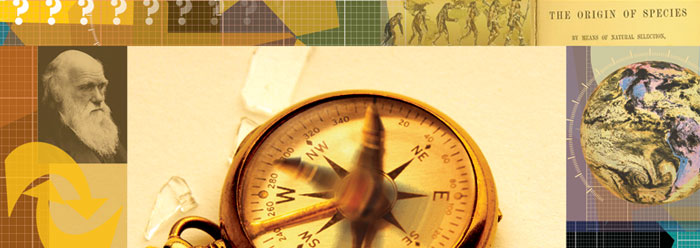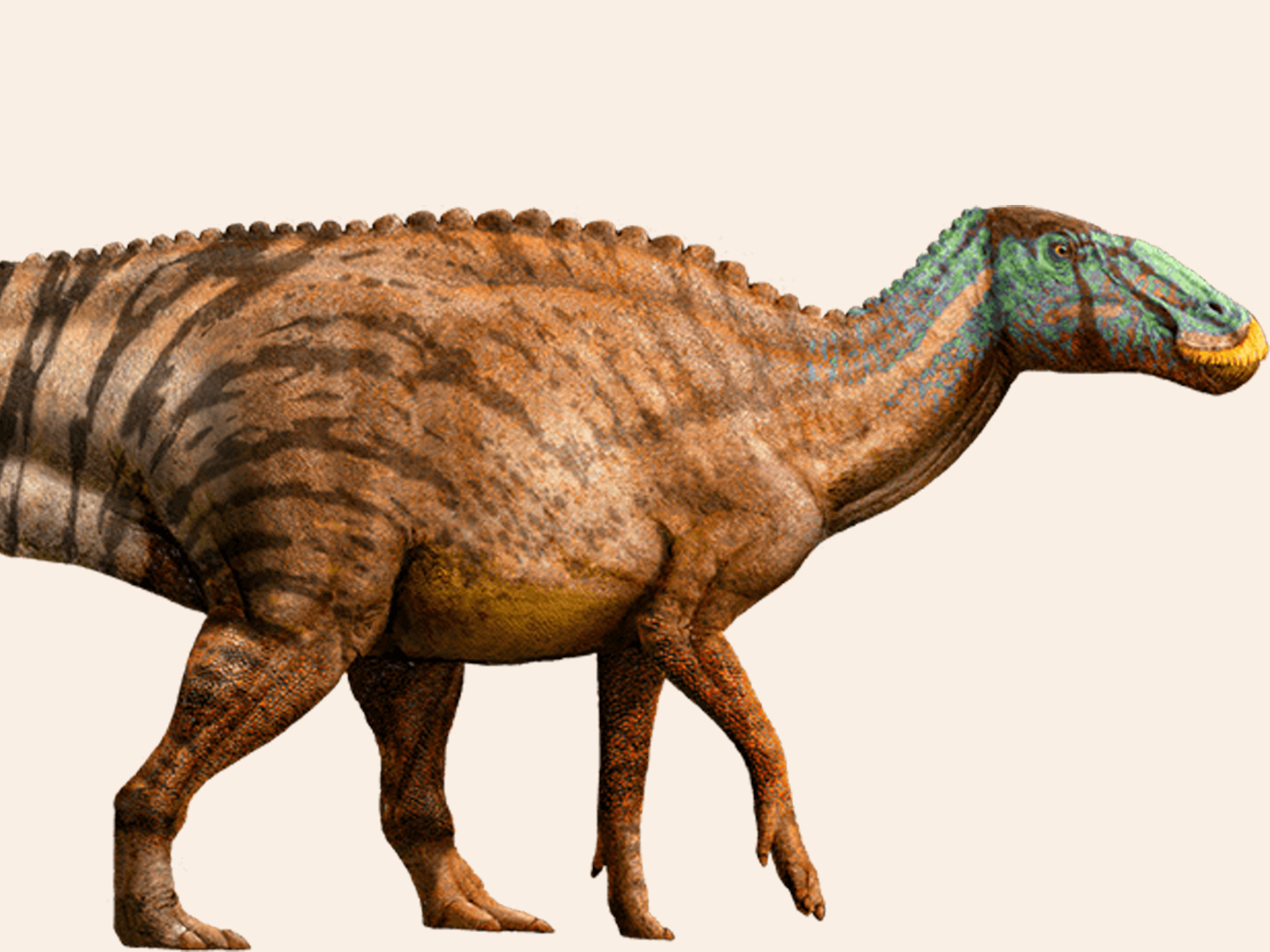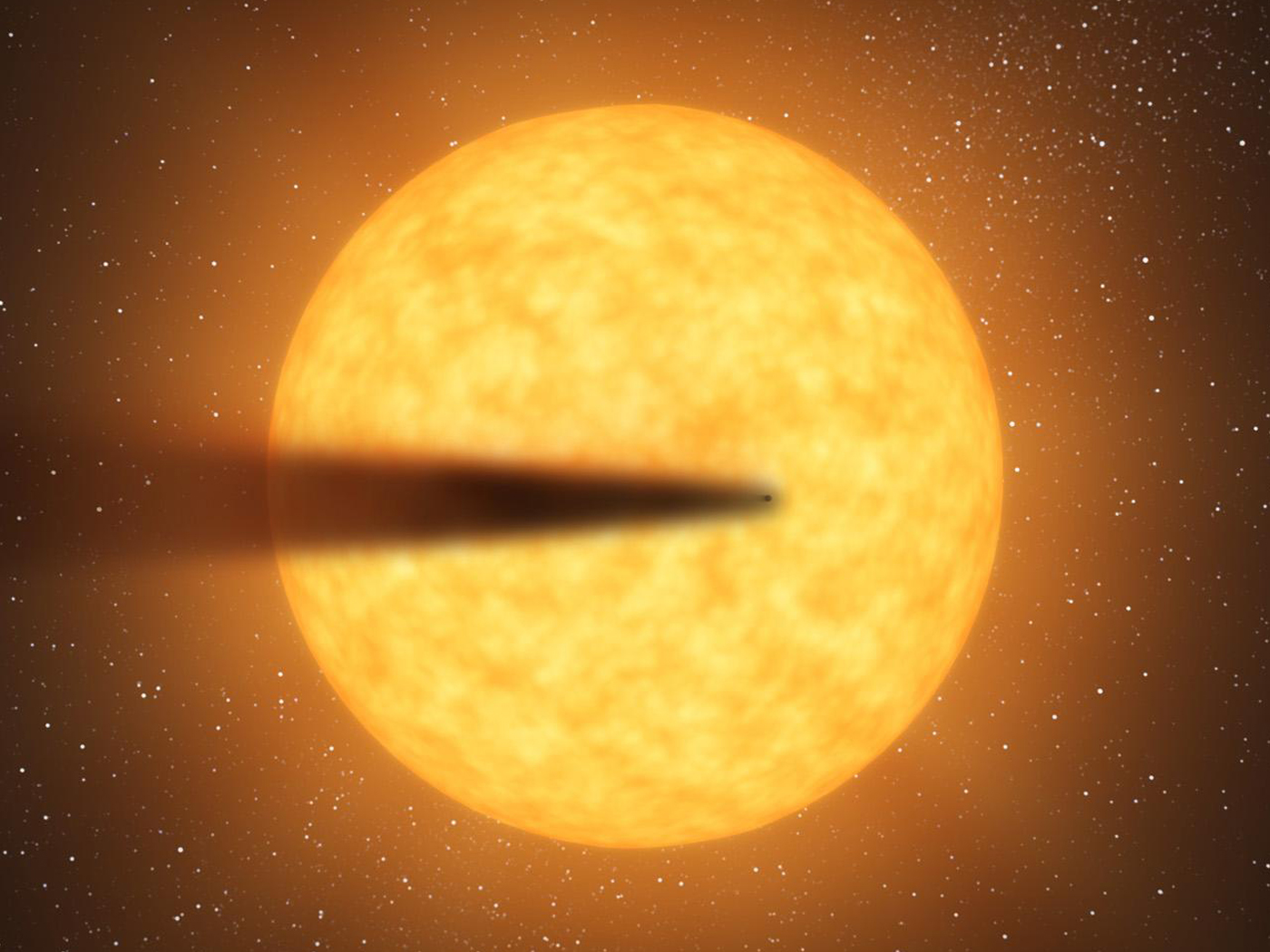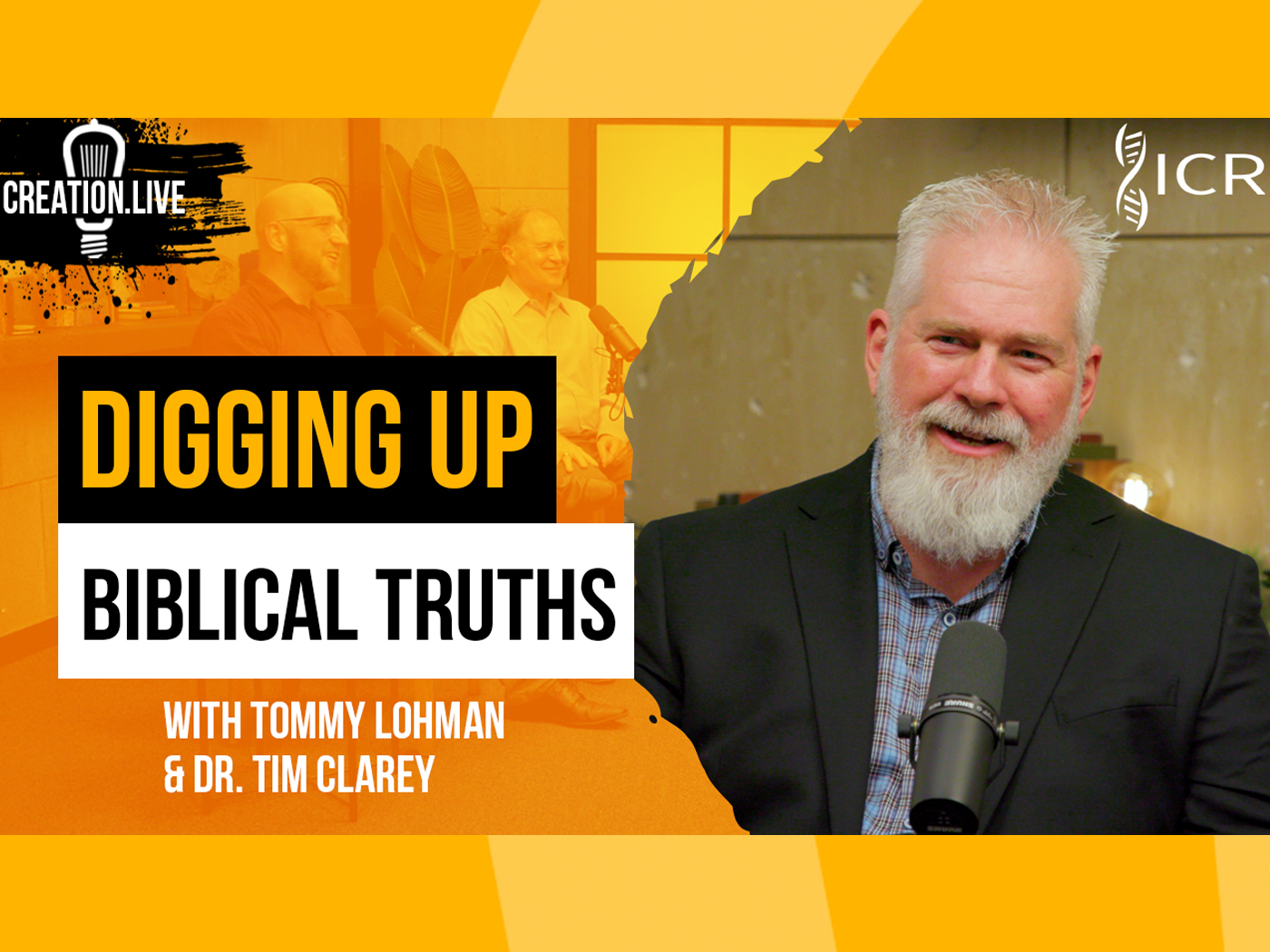Humans have always wondered about the meaning of life...life has no higher purpose than to perpetuate the survival of DNA...life has no design, no purpose, no evil and no good, nothing but blind pitiless indifference.1 --Richard Dawkins
Evolution is "deceptively simple yet utterly profound in its implications,"2 the first of which is that living creatures "differ from one another, and those variations arise at random, without a plan or purpose."3 Evolution must be without plan or purpose because its core tenet is the natural selection of the fittest, produced by random copying errors called mutations. Darwin "was keenly aware that admitting any purposefulness whatsoever to the question of the origin of species would put his theory of natural selection on a very slippery slope."4 Pulitzer Prize author Edward Humes wrote that the fact of evolution was obvious but "few could see it, so trapped were they by the human…desire to find design and purpose in the world." He concluded:
Darwin's brilliance was in seeing beyond the appearance of design, and understanding the purposeless, merciless process of natural selection, of life and death in the wild, and how it culled all but the most successful organisms from the tree of life, thereby creating the illusion that a master intellect had designed the world. But close inspection of the watchlike "perfection" of honeybees' combs or ant trails…reveals that they are a product of random, repetitive, unconscious behaviors, not conscious design.5
The fact that evolution teaches that life has no purpose beyond perpetuating its own survival is not lost on teachers. One testified that teaching evolution "impacted their consciences" because it moved teachers away from the "idea that they were born for a purpose… something completely counter to their mindset and beliefs."6
In a study on why children resist accepting evolution, Yale psychologists Bloom and Weisberg concluded that the evolutionary way of viewing the world, which the authors call "promiscuous teleology," makes it difficult for them to accept evolution. Children "naturally see the world in terms of design and purpose."7 The ultimate purposelessness of evolution, and thus of the life that it produces, was eloquently expressed by Professor Lawrence Krauss as follows: "We're just a bit of pollution…. If you got rid of us…the universe would be largely the same. We're completely irrelevant."8
The Textbooks
To determine what schools are teaching about religious questions such as the purpose of life, I surveyed current science textbooks and found that they tend to teach the view that evolution is both nihilistic and atheistic. One of today's most widely-used textbooks stated that "evolution works without either plan or purpose…. Evolution is random and undirected."9 Another text by the same authors added that Darwin knew his theory "required believing in philosophical materialism, the conviction that matter is the stuff of all existence and that all mental and spiritual phenomena are its byproducts." The authors continued:
Darwinian evolution was not only purposeless but also heartless--a process in which...nature ruthlessly eliminates the unfit. Suddenly, humanity was reduced to just one more species in a world that cared nothing for us. The great human mind was no more than a mass of evolving neurons. Worst of all, there was no divine plan to guide us.10
Another text taught that humans are just "a tiny, largely fortuitous, and late-arising twig on the enormously arborescent bush of life" and the belief that a "progressive, guiding force, consistently pushing evolution to move in a single direction" is now known to be "misguided."11 Many texts teach that evolution is purposeless and has no goal except to achieve brute survival: the "idea that evolution is not directed towards a final goal or state has been more difficult for many people to accept than the process of evolution itself."12 One major text openly teaches that humans were created by a blind, deaf, and dumb watchmaker--namely natural selection, which is "totally blind to the future."
Humans...came from the same evolutionary source as every other species. It is natural selection of selfish genes that has given us our bodies and our brains…. Natural selection…explains…the whole of life, the diversity of life, the complexity of life, |and| the apparent design in life."13
The Implications
Many texts are very open about the implications of Darwinism for theism. One teaches that Darwin's immeasurably important contribution to science was to show that, despite life's apparent evidence of design and purpose, mechanistic causes explain all biological phenomena. The text adds that by coupling "undirected, purposeless variation to the blind, uncaring process of natural selection, Darwin made theological or spiritual explanations of the life processes superfluous."14 The author concludes by noting that "it was Darwin's theory of Evolution that provided a crucial plank to the platform of mechanisms and materialism…that has been the stage of most western thought."15 Another text even stated directly that humans were created by a random process, not a loving, purposeful God, and:
The real difficulty in accepting Darwin's theory has always been that it seems to diminish our significance…. |Evolution| asked us to accept the proposition that, like all other organisms, we too are the products of a random process that, as far as science can show, we are not created for any special purpose or as part of any universal design.16
These texts are all clearly teaching religious ideas, not science. An excellent example is a text that openly ruled out not only theistic evolution, but any role for God in nature, and demonstrated that Darwinism threatened theism by showing that humans and all life "could be explained by natural selection without the intervention of a god." Evolutionary "randomness and uncertainty had replaced a deity having conscious, purposeful, human characteristics."
The Darwinian view that… present-type organisms were not created spontaneously but formed in a succession of selective events that occurred in the past, contradicted the common religious view that there could be no design, biological or otherwise, without an intelligent designer…. In this scheme a god of design and purpose is not necessary…. Religion has been bolstered by… the comforting idea that humanity was created in the image of a god to rule over the world and its creatures. Religion provided emotional solace, a set of ethical and moral values…. Nevertheless, faith in religious dogma has been eroded by natural explanations of its mysteries…. The positions of the creationists and the scientific world appear irreconcilable."17
Darwin himself taught a totally atheistic, naturalistic view of origins. He even once said, "I would give nothing for the theory of natural selection if it requires miraculous additions at any one stage of descent."18 John Alcock, an evolutionary biologist, therefore concluded that "we exist solely to propagate the genes within us."19
Leading Darwin scholar Janet Browne makes it very clear that Darwin's goal was the "arduous task of reorienting the way Victorians looked at nature." To do this Darwin had to convince the world that "ideas about a benevolent, nearly perfect natural world" and those that believe "beauty was given to things for a purpose, were wrong--that the idea of a loving God who created all living things and brought men and women into existence was…a fable."
The world…steeped in moral meaning which helped mankind seek out higher goals in life, was not Darwin's. Darwin's view of nature was dark--black…. Where most men and women generally believed in some kind of design in nature--some kind of plan and order--and felt a deep-seated, mostly inexpressible belief that their existence had meaning, Darwin wanted them to see all life as empty of any divine purpose.20
Darwin knew how difficult it was to abandon such a view, but realized that for evolution to work, nature must ultimately be "governed entirely by chance." Browne concludes:
The pleasant outward face of nature was precisely that--only an outward face. Underneath was perpetual struggle, species against species, individual against individual. Life was ruled by death...destruction was the key to reproductive success. All the theological meaning was thus stripped out by Darwin and replaced by the concept of competition. All the telos, the purpose, on which natural theologians based their ideas of perfect adaptation was redirected into Malthusian--Darwinian--struggle. What most people saw as God-given design he saw as mere adaptations to circumstance, adaptations that were meaningless except for the way in which they helped an animal or plant to survive.21
Neo-Darwinist Richard Dawkins recognized the purposelessness of such a system:
In a universe of blind physical forces and genetic replication some people are going to get hurt, other people are going to get lucky, and you won't find any rhyme or reason in it, nor any justice. The universe we observe has precisely the properties we should expect if there is, at bottom, no design, no purpose, no evil and no good, nothing but blind, pitiless indifference.22
How widely is this view held by scientists? One study of 149 leading biologists found that 89.9 percent believed that evolution has no ultimate purpose or goal except survival, and we are just a cosmic accident existing at the whim of time and chance. A mere six percent believed that evolution has a purpose.23 Almost all of those who believed that evolution had no purpose were atheists. This is only one example that Sommers and Rosenberg call the "destructive power of Darwinian theory."24
Purpose and Christianity
Christianity teaches that God made the universe as a home for humans. If the universe evolved purely by natural means, then it just exists and any "purpose" for its existence can only be that which humans themselves attribute to it. But our own experience and intellectual attainments argue against this. The similarity of human-constructed machines and the orderly functioning of the universe is the basis of the design argument. Just as a machine requires a designer and a builder, so too the universe that we see requires a designer and a builder.
Determining the purpose of something depends on the observer's worldview. To a nontheist the question "What is the purpose of a living organism's structure?" means only "How does this structure aid survival?" Eyesight and legs would therefore have nothing to do with enjoyment of life; they are merely an unintended byproduct of evolution. Biologists consistently explain everything from coloration to sexual habits solely on the basis of survival. Orthodox neo-Darwinism views everything as either an unfortunate or a fortuitous event resulting from the outworking of natural law and random, naturally-selected mutations. Conversely, creationists interpret all reality according to beliefs about God's purpose for humans. Evolutionists can usually explain even contradictory behavior, but creationists look beyond this and try to determine what role it plays in God's plan.
Conclusions
Orthodox evolution teaches that the living world has no plan or purpose except survival, is random, undirected, and heartless. Humans live in a world that cares nothing for us, our minds are simply masses of meat, and no divine plan exists to guide us. These teachings are hardly neutral, but rather openly teach religion--the religion of atheism and nihilism. The courts have consistently approved teaching this anti-Christian religion in public schools and have blocked all attempts to neutralize these clearly religious ideas.
As the Word of God states, "For the time will come when they will not endure sound doctrine; but after their own lusts shall they heap to themselves teachers, having itching ears; And they shall turn away their ears from the truth, and shall be turned unto fables" (2 Timothy 4:3-4).
References
- Scheff, Liam. 2007. The Dawkins Delusion. Salvo, 2:94.
- Humes, Edward. 2007. Monkey Girl: Evolution, Education, Religion, and the Battle for America's Soul. New York: Ecco, 119.
- Ibid, 119.
- Turner, J. Scott. 2007. The Tinkerer's Accomplice: How Design Emerges from Life Itself. Cambridge, MA: Harvard University Press, 206.
- Humes, Monkey Girl, 119.
- Ibid, 172.
- Bloom, Paul and Deena Skolnick Weisberg. 2007. Childhood Origins to Adult Resistance to Science. Science, 316:996.
- Panek, Richard. 2007. Out There. New York Times Magazine, 56.
- Miller, Kenneth R. and Joseph S. Levine. Biology. 1998. Fourth Edition, Englewood Cliffs, NJ: Prentice Hall, 658, emphasis in original.
- Levine, Joseph S. and Kenneth R. Miller 1994. Biology: Discovering Life. Second Edition, Lexington, MA: D.C. Heath, 161, emphasis in original.
- Raven, Peter H. and George B. Johnson. 2002. Biology. Sixth Edition, Boston, MA: McGraw Hill, 16, 443.
- Purves, William K., David Sadava, Gordon H. Orians, and H. Craig Keller. 2001. Life: The Science of Biology. Sixth Edition, Sunderland, MA: Sinauer Associates; W.H. Freeman, 3.
- Interview with Richard Dawkins in Campbell, Neil A., Jane B. Reece, and Lawrence G. Mitchell. 1999. Biology. Fifth Edition, Menlo Park, CA: Addison Wesley Longman, 412-413.
- Futuyma, Douglas J. 1998. Evolutionary Biology. Third Edition, Sunderland, MA: Sinauer Associates, 5.
- Ibid, 5.
- Curtis, Helena and N. Sue Barnes. 1981. Invitation to Biology. Third Edition, New York, NY: Worth, 475.
- Strickberger, Monroe. 2000. Evolution. Third Edition, Sudbury, MA: Jones & Bartlett, 70-71.
- Darwin, Francis (editor). 1888. The Life and Letters of Charles Darwin. London: John Murray, 210.
- Alcock, John. 1998. Animal Behavior: An Evolutionary Approach. Sunderland, MA: Sinauer Associates, 16, 609.
- Browne, Janet. 1995. Charles Darwin: Voyaging, A Biography. Princeton, New Jersey: Princeton University Press, 542.
- Ibid, 542.
- Dawkins, Richard. 1995. River Out of Eden. New York: Basic Books, 133.
- Graffin, Gregory W. 2004. Evolution, Monism, Atheism, and the Naturalist World-View. Ithaca, NY: Polypterus Press, 42.
- Sommers, Tamler and Alex Rosenberg. 2003. Darwin's Nihilistic Idea: Evolution and the Meaningless of Life. Biology and Philosophy, 18:653.
* Dr. Bergman is Professor of Biology at Northwest State College in Ohio.
Cite this article: Bergman, J. 2007. Darwinism: Survival without Purpose. Acts & Facts. 36 (11): 10.














